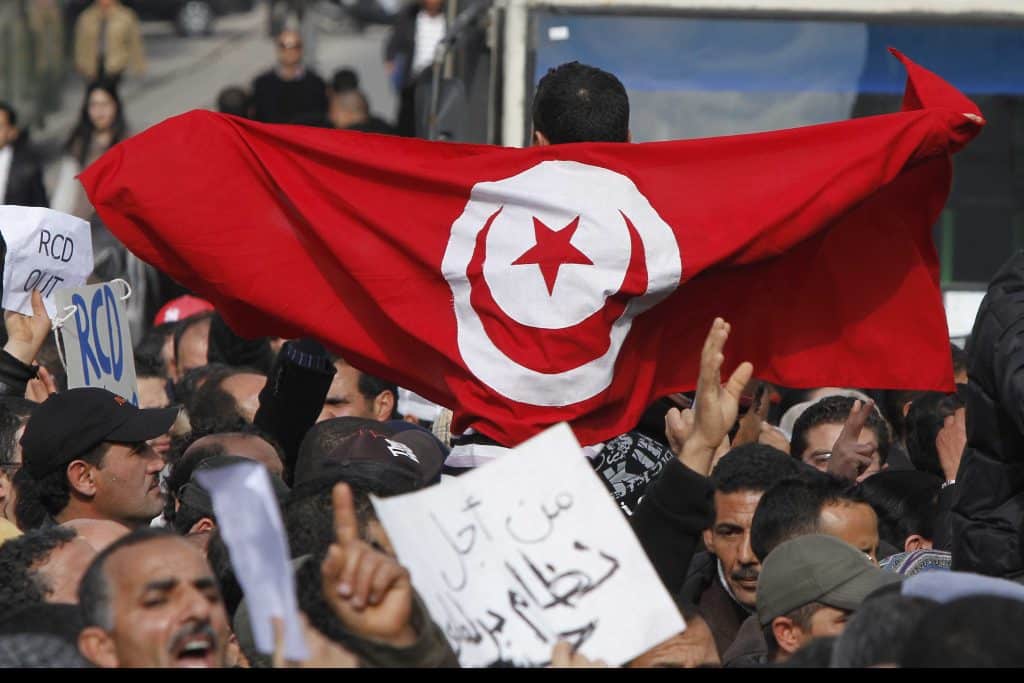Protests in Tunis, Tunisia 2011: Flickr
President Kais Saied's regime in Tunisia has reached a new low with a crackdown on critics. Dozens of public figures, including politicians, protest organisers, lawyers, judges, trade union officials, the head of an independent radio station and business leaders, were arrested in often violent night raids. This led to protests across the country during a growing fear of a return to autocracy.
In recent weeks, the police have rounded up dozens of prominent members of the opposition arrested, most of whom have links to the coalition of parties and protesters who protested on Sunday In recent weeks, arrests have included politicians from Ennahda, the largest party in the now-closed parliament, leaders of a protest group, the head of Tunisia's main independent media and a prominent businessman. The regime has justified these actions by accusing those arrested of various crimes, such as manipulating the market, creating food shortages and conspiring against the state. The Saied government is thus explicitly trying to blame critics for Tunisia's poor economic state.
Coup d'état
Saied, who was elected in 2019 and shut down parliament in 2021 and started ruling by decree. His popularity is waning because of the country's ongoing economic crisis and increasing crackdown on activists and members of the opposition. In the last elections in December, turnout was only 8.8 per cent. According to the president's opponents, it is becoming increasingly clear that he has dismantled the democracy he ushered in during the 2011 Arab Spring and will end the freedoms he brought with him. Saied has denied that his actions were a coup and claimed that his actions were necessary to save Tunisia from chaos. His actions led to wisecracking protests across the country.
Attack on democracy
This sweeping crackdown on dissent comes after a similar Attack on the independent judiciary in recent months, dismissing dozens of judges for alleged corruption. Judges who recently appealed their dismissals say they are being targeted because they defend the independence of the judiciary and refuse to follow the regime's orders
The three branches of the government have been completely sidelined: the independent media has been silenced, trade unions are sidelined and prominent opposition figures have been jailed on trumped-up charges. Indeed, the Saied regime's crackdown has serious implications for democracy and human rights in the country. The suppression of dissent and arrests of critics and opposition leaders are a serious violation of freedom of expression and the rule of law. Moreover, the regime has put pressure on the independent judiciary and trade unions, further contributing to the erosion of democracy in Tunisia. It is imperative that the international community calls on the Tunisian government to respect human rights and restore democracy.





